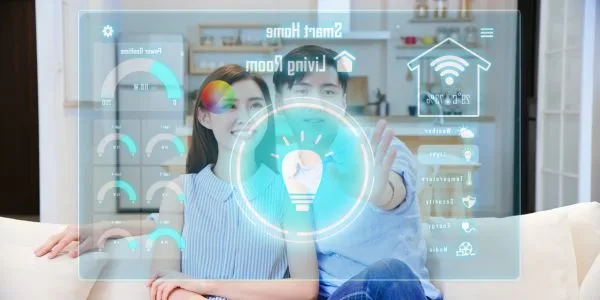Revolutionizing the Kitchen: Smart Appliances and Gadgets
In the fast-paced, technology-driven world we live in today, innovation knows no bounds. Every aspect of our lives is undergoing a transformation, and the heart of our homes, the kitchen, is no exception. Welcome to the era of smart appliances and gadgets that are revolutionizing the way we cook, eat, and interact with our culinary spaces. In this article, we’ll delve into the exciting world of kitchen innovation, exploring how these smart devices are changing the game, enhancing our cooking experiences, and even contributing to a more sustainable future.
The Rise of the Smart Kitchen
What Makes a Kitchen Smart?
Before we dive deep into the world of smart appliances and gadgets, let’s clarify what we mean by a “smart kitchen.” A smart kitchen is one that employs cutting-edge technology to make your cooking and meal preparation easier, more convenient, and often, more enjoyable. These technological marvels are designed to connect, automate, and streamline various kitchen tasks.
Connectivity and Automation
One of the defining features of smart kitchens is connectivity. Smart appliances and gadgets can be connected to your smartphone or tablet via Wi-Fi, allowing you to monitor and control them remotely. Whether you’re at work or just lounging on the couch, you can adjust your oven’s temperature, check the contents of your refrigerator, or even start your coffee maker, all with a few taps on your device.
Voice Control
Voice assistants like Amazon’s Alexa and Google Assistant have found their way into our kitchens. You can now control many smart appliances with simple voice commands. Imagine asking your oven to preheat, instructing your coffee machine to brew a cup, or requesting a recipe recommendation—all without lifting a finger.
Enhanced Efficiency
Smart appliances are all about making your life easier. They often come with features like pre-programmed cooking modes, precise temperature control, and automatic shut-off functions. These not only save you time but also help you avoid culinary mishaps.
Integration with Recipes
Many smart appliances are designed to work seamlessly with recipe apps. You can select a recipe on your smartphone, and your smart oven or cooktop will automatically set the temperature and cooking time, ensuring your dish turns out perfectly every time.
The Smart Appliance Revolution
1. Smart Refrigerators
Refrigerators have come a long way from being simple food storage units. Smart refrigerators are now equipped with cameras that allow you to see what’s inside, even when you’re at the grocery store. Forgot to make a shopping list? No problem—just check your fridge’s contents on your phone.
These refrigerators can also send you expiration date reminders, helping to reduce food waste. Some models can even suggest recipes based on the ingredients you have, making meal planning a breeze.
2. Smart Ovens
Gone are the days of guessing when your dish is perfectly cooked. Smart ovens come with built-in temperature probes that monitor your food’s internal temperature. When your roast reaches the desired level of doneness, the oven can automatically turn off or send you a notification.
Additionally, these ovens often have a variety of cooking modes for different dishes. Whether you’re baking, broiling, or roasting, there’s a mode for you. And, as mentioned earlier, they can be controlled remotely or through voice commands.
3. Smart Coffee Makers
For many of us, a cup of coffee is the kickstart to our day. Smart coffee makers have taken this daily ritual to the next level. You can schedule your coffee to be ready when you wake up or even brew a pot with a simple voice command. Some models can even customize the strength and flavor of your coffee based on your preferences.
4. Smart Cooktops and Ranges
Cooking on a gas or electric stove can sometimes be a guessing game, especially when it comes to precise temperatures. Smart cooktops and ranges offer a solution to this challenge. They often come with touch controls and the ability to set exact temperatures for your cooking needs. No more turning knobs and hoping for the best.
5. Smart Dishwashers
After enjoying a delicious meal, no one wants to spend hours scrubbing dishes. Smart dishwashers can detect how dirty your dishes are and adjust the wash cycle accordingly. They also have options for quick washes, eco-friendly modes, and even Wi-Fi connectivity to alert you when the cycle is complete.
6. Smart Small Appliances
It’s not just the major appliances that are getting smarter. Small appliances like blenders, toasters, and food processors are also joining the club. You can now control the blending time, toast shade, and chopping speed with precision. Plus, some of these gadgets can be synced with recipe apps to ensure your smoothie or toast is just the way you like it.
The Benefits of a Smart Kitchen
1. Time-Saving
One of the most significant advantages of a smart kitchen is the time it saves. With appliances that can be controlled remotely and automated cooking processes, you can multitask or relax while your meal is being prepared. No more standing by the stove or oven, anxiously watching the clock.
2. Energy Efficiency
Smart appliances are designed to be energy-efficient. They can adjust their settings to minimize energy consumption while still delivering optimal results. For example, a smart dishwasher can choose the most efficient wash cycle based on the load’s size and dirtiness, ultimately saving you money on your utility bills.
3. Reduced Food Waste
With smart refrigerators keeping tabs on your food’s freshness and sending you reminders, you’re less likely to let ingredients go to waste. Additionally, some appliances can suggest recipes based on what you have in stock, making creative use of your ingredients and reducing food waste even further.
4. Convenience
The convenience factor of a smart kitchen cannot be overstated. Whether it’s preheating your oven on your way home from work or getting your coffee ready without leaving your bed, these appliances are designed to make your life more comfortable.
5. Improved Cooking Results
Smart appliances take the guesswork out of cooking. With precise temperature control and automatic adjustments, your dishes will turn out consistently delicious. You can also explore new recipes with confidence, knowing that your smart appliances will guide you through the process.
The Sustainable Kitchen of the Future
In addition to their convenience and efficiency, smart kitchens are also contributing to a more sustainable future. Here’s how:
1. Reduced Energy Consumption
Smart appliances are designed to use energy more efficiently. They can adjust their settings to minimize energy usage while still delivering top-notch performance. This not only saves you money on your utility bills but also reduces your carbon footprint.
2. Minimized Food Waste
Food waste is a significant environmental issue. Smart refrigerators with inventory tracking and expiration date reminders help reduce food waste by ensuring you use what you have before it goes bad. This, in turn, reduces the need for food production and transportation, which can be resource-intensive.
3. Sustainable Cooking
Many smart appliances offer eco-friendly cooking modes that use less energy and water. Some ovens, for example, have convection settings that cook food faster and more evenly, reducing overall energy consumption. Additionally, smart cooktops with precise temperature control can help prevent overcooking, which often leads to wasted food.
4. Sustainable Shopping
Some smart refrigerators can suggest recipes based on the ingredients you have, helping you make the most of what’s in your fridge. This encourages a “shop your kitchen” mentality, where you use up existing ingredients before buying more, ultimately reducing the demand for new groceries and the associated packaging.
The Future of Smart Kitchens
The journey of smart kitchens has only just begun. As technology continues to advance, we can expect even more exciting developments in this space. Here are some trends and possibilities to look forward to:
1. Integration of AI and Machine Learning
Artificial intelligence (AI) and machine learning will play a more significant role in smart kitchens. Appliances will learn your preferences, suggest recipes based on your dietary restrictions, and even help you plan meals for the week. They will become true culinary assistants.
2. Sustainability Enhancements
The sustainability aspect of smart kitchens will continue to evolve. Appliances may offer more precise data on energy and water usage, helping users make informed choices. Integration with renewable energy sources like solar panels could also become more widespread.
3. Enhanced Security
With more appliances connected to the internet, security will be a top priority. Manufacturers will need to implement robust security measures to protect users’ data and ensure the safe operation of smart appliances.
4. Customization and Personalization
Smart kitchens will become increasingly tailored to individual users. Your appliances will know your cooking habits, dietary preferences, and even your schedule. This will lead to more customized cooking recommendations and automated meal planning.
5. Ecosystems and Interoperability
In the future, we can expect smart appliances from different manufacturers to work seamlessly together. An ecosystem of interconnected devices will make it easier for users to manage their kitchen tasks and create a unified cooking experience.
FAQs
Q1: Are smart appliances more expensive than traditional ones?
A1: Initially, smart appliances can be more expensive, but they often provide long-term cost savings through energy efficiency and reduced food waste. The convenience they offer is also a significant factor to consider.
Q2: Do I need a smartphone to use smart appliances?
A2: While most smart appliances can be controlled via a smartphone, many also offer manual controls on the appliance itself. So, having a smartphone is not a strict requirement, but it enhances the user experience.
Q3: Are smart kitchens safe from hacking and cybersecurity threats?
A3: Manufacturers take cybersecurity seriously and continuously update their appliances to address potential vulnerabilities. To enhance security, it’s crucial to follow best practices such as regularly updating firmware and using strong, unique passwords for each device.
Q4: Can I retrofit my existing kitchen with smart appliances?
A4: In many cases, yes. You can add individual smart appliances like smart plugs, bulbs, or thermostats to your existing kitchen. However, for a fully integrated smart kitchen, you may need to replace some of your current appliances.
Q5: Are smart kitchens only for tech-savvy individuals?
A5: While some level of tech proficiency is helpful, smart appliances are designed to be user-friendly, and most come with straightforward apps and interfaces. Anyone willing to learn a few basics can enjoy the benefits of a smart kitchen.
Conclusion
The kitchen, once a traditional space for culinary creativity, has undergone a remarkable transformation thanks to the rise of smart appliances and gadgets. From smart refrigerators that keep track of your groceries to ovens that cook your meals to perfection, these innovations have made cooking more convenient, efficient, and enjoyable.
In addition to the immediate benefits of time savings and energy efficiency, smart kitchens also play a crucial role in promoting sustainability by reducing food waste and energy consumption. As technology continues to advance, we can expect even more exciting developments in the world of smart kitchens, including AI-driven culinary assistance, enhanced customization, and improved interoperability among devices.
So, whether you’re a seasoned chef or a novice in the kitchen, it’s time to embrace the future of cooking and revolutionize your kitchen with smart appliances and gadgets. Your taste buds, your wallet, and the planet will thank you.






